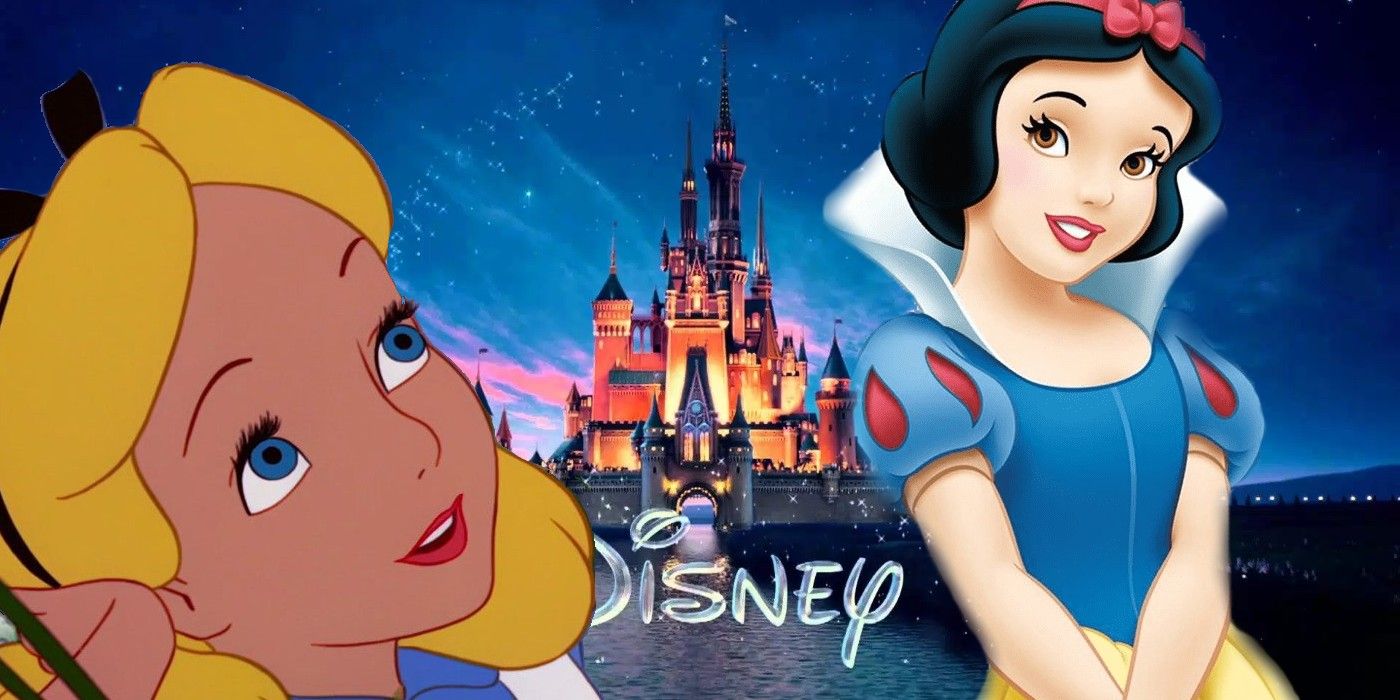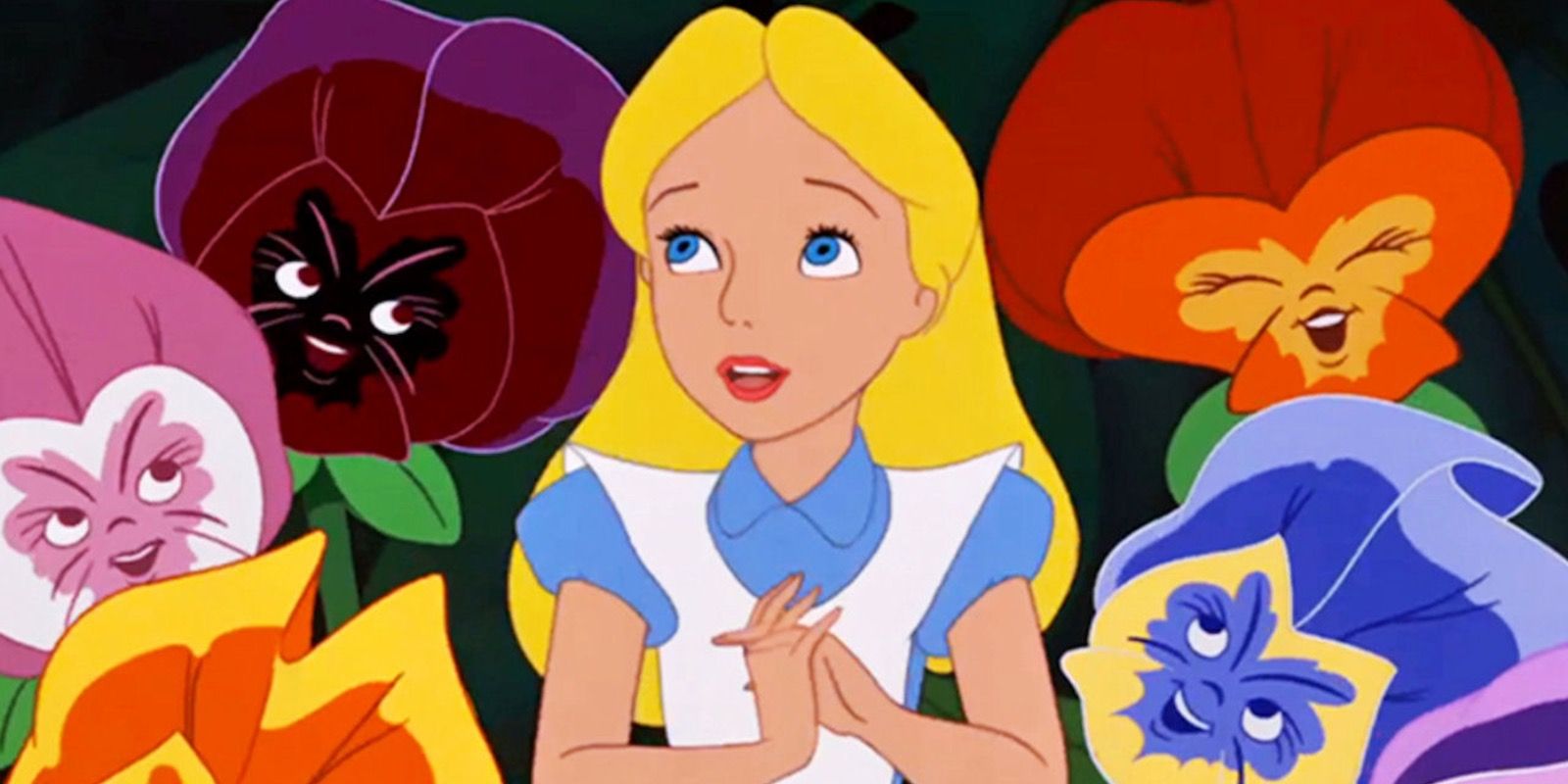Disney once planned to release Alice in Wonderland as their first animated movie instead of Snow White, and this would've fundamentally changed movie history. Disney's 1937 Snow White & The Seven Dwarfs is without question one of the most influential releases in movie history. Walt Disney Animation Studios had enjoyed success with groundbreaking animation shorts, the most iconic being the debut of Mickey Mouse in Steamboat Willie, but Snow White marked a paradigm shift to feature-length movies - a first for the animation industry. The incredibly ambitious production necessitated advancements in animation that paved the way for the future, and Snow White's runaway success proved feature-length animated films would live happily ever after.
Alice in Wonderland was finally released by Disney in 1951, long after the studio had established itself as the forerunner of animation. Based on the book by Lewis Carroll, the Alice in Wonderland movie is fondly remembered today and arguably remains the most popular adaptation of the characters. Disney's Alice in Wonderland brought Carroll's offbeat world to a whole new audience in Walt's trademark colorful fashion, but the film fared much worse than Snow White. Financially, Alice in Wonderland was a major loss for the company and critical reaction wasn't much better. Even Carroll fans were displeased with the film's abundance of alterations, proving that little has changed when it comes to literary adaptations. Thankfully, retrospective opinion has been far kinder to Disney's version of Alice.
Given this stark difference in fortunes, it's interesting that Walt Disney Animation Studios once planned Alice in Wonderland to be their first feature-length release. After deciding to take animation into the big leagues, Walt Disney needed the right story and had been animating various retellings of Alice's adventures long before establishing his own studio. Already very familiar with the world and characters, it was only logical to step into the future with Alice as the studio's flagship character. Rather than pure animation, however, the 1930s Alice in Wonderland movie would have incorporated live-action elements, and got as far as screen-testing actresses for the lead role before Alice was put on hold for almost 20 years. As fate would have it, Paramount released a live-action Alice in Wonderland movie in 1933, forcing Walt Disney to move onto his next big idea - something about a woman and her miner friends.
The entire history of animated movies might've played out very differently had Disney's Alice in Wonderland plans not changed. Walt was already taking a huge risk by making a full-length animated film and the box office troubles of 1951's Alice in Wonderland suggest the original 1933 would've been a flop too - proving Disney's many doubters wrong. It's possible that Disney's run of animated classics might've never been financially viable if they'd started off with such a big loss. Furthermore, critical reaction to Alice in Wonderland proves that a 1950s audience simply weren't ready for such a trippy and reality-bending story. This would've been ever truer of 1930s movie-goers, and the out-there tone of Alice in Wonderland could've deterred the mainstream from animated movies. While hardly realistic, Snow White's fairy tale formula was more familiar and grounded.
Snow White & The Seven Dwarfs laid the foundations for Disney's Hollywood success, beginning a run of timeless animated classics and establishing the overall ethos of Disney - the princesses, the fantasy, the romance. Alice in Wonderland sets an entirely different tone, so even if the movie had been successful, Disney wouldn't be the same company that dominates the industry in the present. While it's impossible to say for certain without use of a TARDIS, releasing Alice in Wonderland first might've meant no Hollywood Disney expansion, no theme parks, no Pixar and no future for animation as a viable medium of feature-length storytelling. Inadvertently, Paramount's decision to release an oft-forgotten flop in 1933 might've changed the entire nature of the movie business forever.


